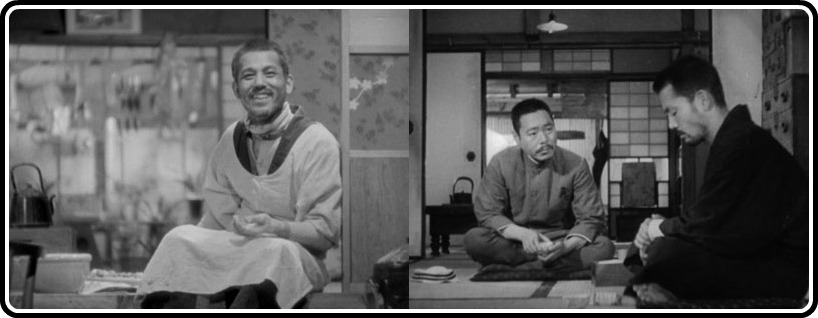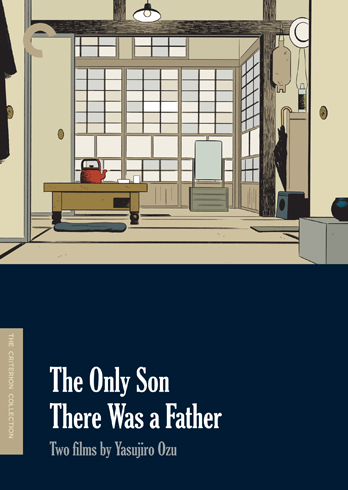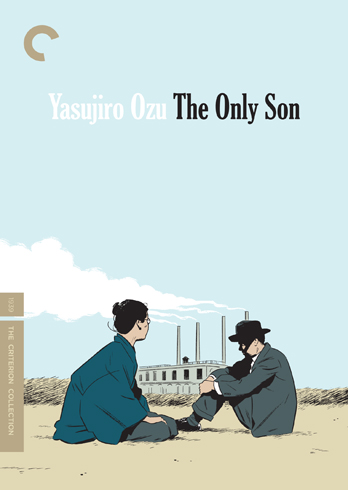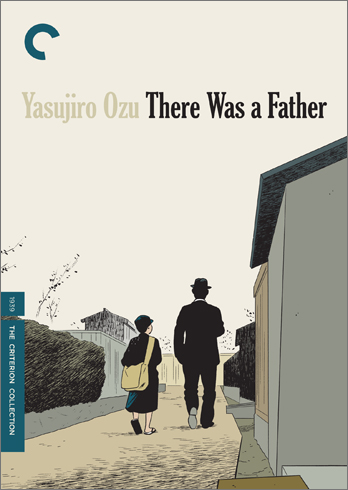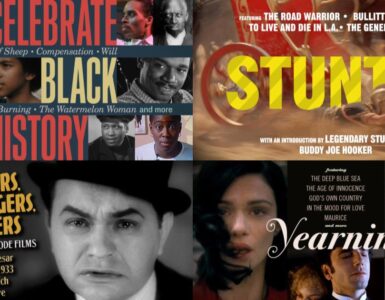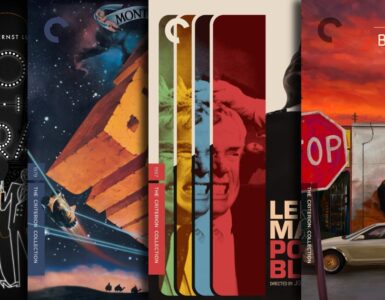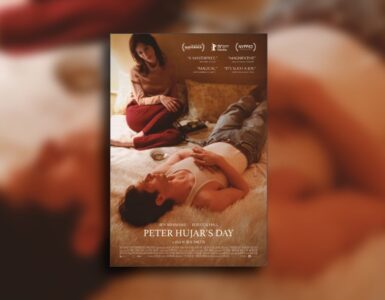The Criterion Collection has just added two important links in the chain for Western cinephiles seeking more convenient access to the films of Yasujiro Ozu. A new mini-box set containing two films, from 1936 and 1942 respectively, fills part of the gap between A Story of Floating Weeds (1933) and Late Spring (1948.) Previously unavailable in the USA, The Only Son and There Was a Father are two fine additions to Ozu’s justly celebrated series of family-centered dramas spread over nearly five decades of Japanese history.
A recent episode of the CriterionCast featured a guest appearance by Moises Chiullan, who’s nearing completion of an epic series of essays chronicling the full extent of Ozu’s career and surviving films (many of his early silent features are now lost.) You can hear his insightful comments on the episode where Moises, Rudie, Ryan and Travis discussed Floating Weeds and A Story of Floating Weeds. Moises provides an abundance of information helpful to viewers new to Ozu as well as those who’ve appreciated his films for years.
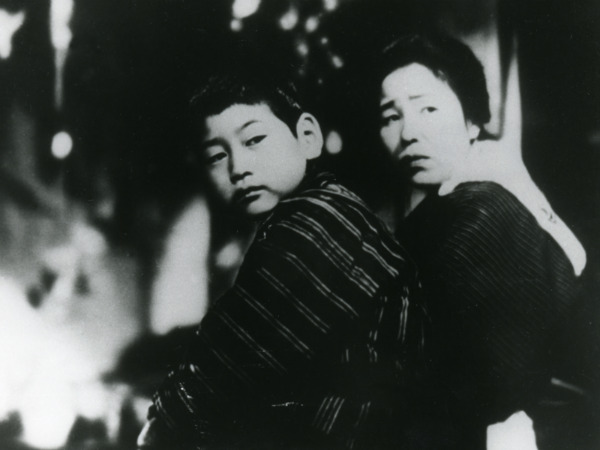

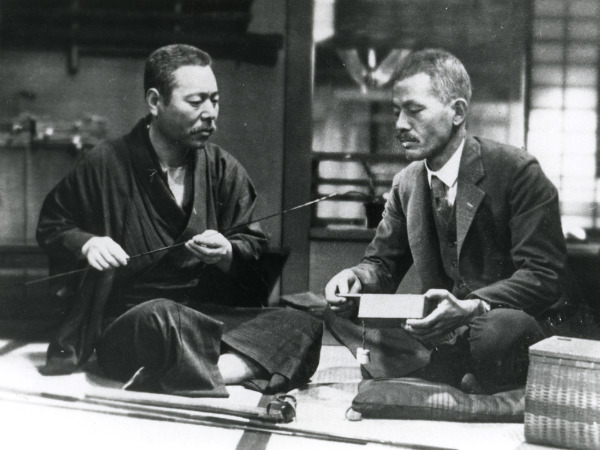
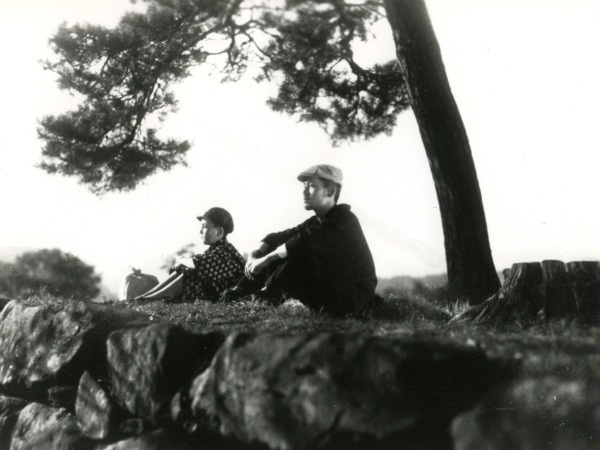
Besides a fine opportunity to delve deeper into the work of this master director, this set gives us Criterion completists the rare privilege of checking off three spine numbers from their list for the cost of one regularly priced DVD! And with a 50% off all Criterion releases sale just starting today at Barnes and Noble, this is the perfect time to expand your collection! What’s not to love about that?
The Only Son / There Was a Father
Criterion # 524 / 525 / 526
These rare early films from Yasujiro Ozu are considered by many to be two of the Japanese director’s finest works, paving the way for a career among the most sensitive and significant in cinema. The Only Son and There Was a Father make a graceful pair, bookending a crucial period in Japanese history. In the former, Ozu’s first sound film, made during a time of intense economic crisis, a mother sacrifices her own happiness for her son’s education; the latter, released in the midst of World War II, stars Ozu stalwart Chishu Ryu as a widowed schoolteacher whose devotion to his son ends up driving them apart. Criterion proudly presents these nearly lost treasures for the first time on home video.
Disc Features
SPECIAL EDITION DOUBLE-DVD SET
- New high-definition digital transfers
- New video interviews with film scholars Tadao Sato, David Bordwell, and Kristin Thompson
- New and improved English subtitle translations
- PLUS: Booklets featuring essays by critic and historian Tony Rayns, an appreciation of actor Chishu Ryu by Japanese film scholar Donald Richie, and comments by Ryu on director Yasujiro Ozu
Criterion # 525
Yasujiro Ozu’s first talkie, the uncommonly poignant The Only Son is among the Japanese director’s greatest works. In its simple story about a good-natured mother who gives up everything to ensure her son’s education and future, Ozu touches on universal themes of sacrifice, family, love, and disappointment. Spanning many years, The Only Son is a family portrait in miniature, shot and edited with its maker’s customary exquisite control.
Disc Features
- New high-definition digital transfer
- New video interviews with film scholars Tadao Sato, David Bordwell, and Kristin Thompson
- New and improved English subtitle translation
- PLUS: A booklet featuring an essay by critic and historian Tony Rayns
Criterion # 526 / DVD
Yasujiro Ozu’s frequent leading man Chishu Ryu is riveting as Shuhei, a widowed high school teacher who finds that the more he tries to do what is best for his son’s future, the more they are separated. Though primarily a delicately wrought story of parental love, There Was a Father offers themes of sacrifice that were deemed appropriately patriotic by Japanese censors at the time of its release during World War II, making it a uniquely political film in Ozu’s body of work.
Disc Features
- New high-definition digital transfer
- New video interview with film scholars David Bordwell and Kristin Thompson
- New and improved English subtitle translation
- PLUS: A booklet featuring an essay by critic and historian Tony Rayns, an appreciation of actor Chishu Ryu by Japanese film scholar Donald Richie, and comments by Ryu on director Yasujiro Ozu


